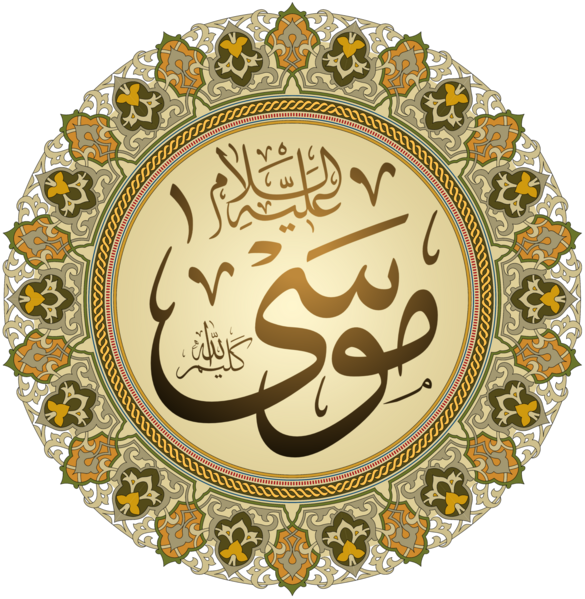The tale of Musa (whose name is given as Moses in English) is a major feature in the Islamic and Judeo-Christian traditions. Musa’s life was a succession of remarkable events, coupled with divine interventions–and a crucial mission to convey Allah’s revelations to mankind.
Musa’s Birth and Early Life
Musa’s life started with his birth at a time when the Israelites were oppressed and subjugated by the ruling Pharaoh of Egypt. So that no boy would grow up to overthrow his reign, Pharaoh had ordered that all male babies born to Israelites should be killed. In a desperate attempt to save her son from this terrible fate, Musa’s mother put him in a basket and sent it floating down the Nile.
Miraculously, the basket reached the palace of the Pharaoh where Musa was found by the family of the Pharaoh and brought up, with no knowledge of his true background. While Musa was growing up, he was known for his physical strength, learning, and innate sense of fairness.
The Exodus and Miracles
As a young man, Musa once saw an Egyptian overseer beating an Israelite. He struck back and killed the overseer by chance. Terrified of reprisals, Musa left Egypt and took refuge in the land of Midian.
When tending the animals of the righteous man Shu’ayb (Jethro) in Midian, Musa came across a burning bush that did not burn up. From within the flames, Allah spoke to Musa and appointed him a prophet. He was instructed to return to Egypt, to face Pharaoh and demand the freedom of the Israelites.
The Exodus and Miracles
Returning to Egypt, Musa brought along his elder brother Harun, approached Pharaoh, and told him Allah’s words. In the face of a chain of miracles including Musa’s staff turning into a snake and his hand shining brilliantly, however, Pharaoh remained stubborn. He refused to release the Israelites.
Denying Pharaoh’s stubbornness, Allah sent a series of plagues upon Egypt each more severe than the last. Lice, frogs, locusts, and blood were but a few of these afflictions. Yet Pharaoh persevered in his disbelief and oppressive ways.
The upshot was that after the confrontation with Pharaoh, a miraculous widening of the Red Sea took place as Musa invoked Allah. The Israelites, pursued by Pharaoh’s army through the sea, made it safely across on dry land, the soldiers who were following them drowned when waters collapsed in on them.
Revelation and Guidance
Having escaped from Egypt, Musa and the Israelites began an Exodus under divine revelation and Musa’s direction. It was during this period that Musa was given the Ten Commandments atop Mt Sinai, establishing monotheism and morality’s fundamental principles.
Howev,er the Israelites’ journey was not without problems. They wavered, disobeyed, and were wayward. Though they saw miracles with their own eyes and were given clear guidance along the way, some among the Israelites were lured by the temptations of this world and fell back down that path.
The Golden Calf Incident
One of the most momentous incidents that occurred during Musa’s leadership was the making and worshiping of a gold-calf by some Israelites in his absence. On his return, having become indignant over this lack of perseverance and faith, Musa went to them and spoke against what they had done. Calmly explaining why this was wrong he broke up the calf so it could not be ‘worshipped’ any longer. Then he asked Allah’s forgiveness on their behalf.
Nevertheless, Musa still admonished the Israelites, telling them how perseverance in faith and strict adherence to divine commandments were important.
Legacy and passing
Musa claimed that his life was characterized by single-minded devotion to Allah, unwavering endurance of difficulties, and unflagging struggles for justice-free men. He is one of the great prophets in Islamic tradition, standing as a model of not just professional leadership but compassion as well; his faith never flinched.
In his final days, Musa appointed Yusha’ ibn Nun (Joshua) as his successor and commanded him to lead the Israelites into the Promised Land. Musa’s legacy gives hope to believers everywhere today because it is an enduring example of persistence and commitment in faith.
Conclusion
The story of Prophet Musa is a powerful testament to the power of faith, endurance as well as divine intervention. From his flawless birth to his leadership during the Exodus and revelation atop Sinai, it is a tale of struggle, triumph and steadfast loyalty to God. Even now, its importance transcends generations. Musa is still a key figure in Islamic thought, leading believers to strive after principles such as justice, compassion and trust when life is hard.

